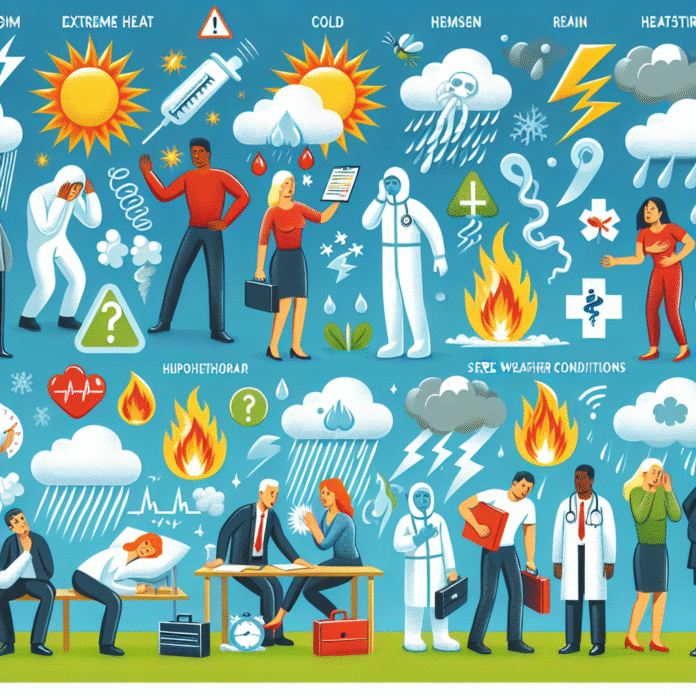Quick Assessment on Health Impacts of Severe Weather Conditions
Medscape
“`html
Quick Assessment: Health Impacts of Severe Weather Events
Extreme weather phenomena, such as hurricanes, floods, heatwaves, and wildfires, pose significant risks to public health. As these events become more frequent and severe due to climate change, understanding their health implications is crucial for effective preparedness and response.
Physical Health Consequences
Extreme weather can lead to a range of physical health issues, including:
- Injuries and Fatalities: Direct impacts from natural disasters can result in injuries or loss of life.
- Respiratory Problems: Wildfires and dust storms can exacerbate respiratory conditions, leading to increased hospital admissions.
- Heat-Related Illnesses: High temperatures can lead to heat exhaustion and heatstroke, particularly among vulnerable populations such as the elderly and those with pre-existing health conditions.
Mental Health Effects
The psychological effects of extreme weather events can be profound, leading to:
- Post-Traumatic Stress Disorder (PTSD): Survivors may experience PTSD following traumatic events caused by disasters.
- Anxiety and Depression: The uncertainty and loss associated with severe weather can increase anxiety and depressive symptoms.
- Community Disruption: Displacement and the breakdown of social networks can exacerbate mental health issues.
Long-Term Health Implications
The aftermath of extreme weather events can lead to long-term health risks, such as:
- Waterborne Diseases: Flooding can contaminate drinking water supplies, leading to outbreaks of diseases.
- Food Insecurity: Droughts and floods can disrupt food supply chains, resulting in nutritional deficiencies.
- Chronic Conditions: Lack of access to healthcare in disaster-stricken areas can exacerbate chronic health conditions.
Preparedness and Response Strategies
To mitigate the health effects of extreme weather, communities can adopt several strategies:
- Emergency Preparedness Plans: Develop and regularly update plans that include health service provisions during disasters.
- Public Health Education: Raise awareness about the health risks associated with extreme weather and promote preventive measures.
- Community Resilience Programs: Foster community engagement and support systems to aid recovery and mental health.
Understanding the extensive health effects of extreme weather is essential for enhancing resilience and improving public health outcomes. As climate change continues to influence weather patterns, ongoing research and proactive measures will be critical in safeguarding health.
“`


